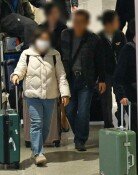Tax Based on the Residences Market Price
Tax Based on the Residences Market Price
Posted September. 15, 2004 21:51,
Starting next year, a residence tax (tentative term), in which a property tax for a residence building and an integrated land tax are combined, will be introduced. This will lead to an increased holding tax on people who own expensive residential buildings in the Gangnam area.
It is known that the integrated land tax will be only applied to land holdings, excluding residential buildings.
In its second real estate policy meeting of the National Economic Advisory Council (NEAC), presided over by President Roh Moo-hyun, at the presidential office of Cheong Wa Dae, the government decided to introduce a residence tax. The government is planning to submit a revised tax law, including related contents of the new tax, to the regular session of the National Assembly, and to make it into effect next year.
In this regard, the government will first come up with an assessment standard on the basis of the residential buildings standard price or estimated value suggested by the Office of National Tax Administration, and then decide a tax figure.
On the other hand, taxation on office and commercial buildings will see no change since the new tax system will be expected to have a high administrative fee.
It is also known that the government decided not to introduce the real estate consolidated tax on personal residential buildings, which imposes higher tax on people possessing expensive residential buildings. Instead, it is highly likely that the real estate consolidated tax on personal land holdings will be introduced. This imposes higher tax on people possessing expensive or excessive amounts of land.
In the meantime, the government also made it clear that it will adjust the tax rate so that the new tax law will not make a sudden increase in taxpayers burden. However, since this residence tax is based on the market price, those with relatively expensive apartments in Seoul are expected to pay more tax.
Jong sik Kong Ji-Wan Cha kong@donga.com cha@donga.com







